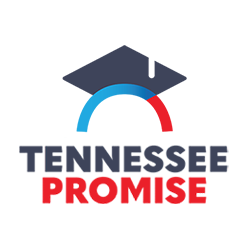- What is Social Science
- Criminal Justice
- Economics
-
Education
- A.S.T. Disposition Assessment
- Early Childhood Education - A.S.T.
- Early Childhood Education Technical Certificate
- Elementary Education (K-5) - A.S.T. (TTP)
- Secondary Education - A.S.
- Secondary Education (English) - A.S.T. (TTP)
- Secondary Education (Math) - A.S.T. (TTP)
- Secondary Education (Social Studies) - A.S.T. (TTP)
- Special Education A.S.T. (TTP)
- Explore the World Around You
- History
- International Affairs
- Political Science
- Psychology
- Social Science and Education - A.S.
- Social Work
- Sociology
- Sports, Health, and Physical Education
- Request Program Information
Teaching, A.S.T. - Early Childhood Education (Pre K-3) (TTP)
Degree: Associate of Science in Teaching
Major: Teaching
Area of Emphasis: Early Childhood Education (Pre K-3)
Department: Education
CIP Code: (08)13.0101.00
For more information, visit the Social Science and Education Department webpage or contact the Social Science and Education division at 615-230-3231 or ssed@volstate.edu.
This pathway is for students planning to complete a bachelor’s degree in Early Childhood Education. Students pursuing careers in early childhood education with a 4-year bachelor’s degree may follow the career of a preschool teacher as well as a teacher in grades K-3. A bachelor’s degree or higher is required for teaching licensure by the state.
Additional AST Degree Requirements:
- Attainment of a 2.75 cumulative grade point average (GPA).
- ACT composite score of 21 (or SAT score of 1080) or higher or successful completion of approved standardized examination (Praxis Core) for admission to the university’s College of Education.
- Satisfactory ratings on an index of suitability for the teaching profession (3 disposition forms).
Note: Students transferring to a public university in Tennessee may need to meet additional requirements to gain admittance to the university.
Transfer Options
Tennessee Transfer Pathways (TTPs) are advising tools designed to help community college students plan for transferring to a Tennessee public university or select regionally accredited, non-profit, Tennessee private colleges and universities to complete their baccalaureate degree. The TTPs also constitute an agreement between community colleges and four-year colleges/universities confirming that community college courses meet major preparation requirements. For transfer to other four-year institutions, contact an advisor at the senior institution. Note: Due to the transferability to a four-year institution, there are to be no course substitutions where a specific course is required in the TTP curriculum guide.
Program Learning Outcomes
Upon completion, the graduate will have developed the skills, knowledge and abilities to accomplish the following:
- Explain how historical, political, social, economic factors, diverse cultures, special education and integrating technology currently affect American education.
- Create his/her own philosophy of teaching including current issues, trends, legal liabilities/responsibilities and reform in public education.
- Develop a lesson plan including the alignment of curriculum standards, educational outcomes, and adaptations for disabilities, predominant theorists, and assessment.
- Compare and contrast a variety of K-12 classroom settings by observing and conferring to pursue a career in education.
- Identify characteristics of exceptional children, multi-disciplinary teaming, special education laws and legislation, accommodations, and modifications to address classroom needs.
Graduation Requirement
- All students graduating with an Associate of Science in Teaching degree from VSCC are required to take the PRAXIS Exam and the E-Proficiency Profile (EPP) to meet graduation requirements. More information can be found on the Graduation Exit Exam webpage.
General Education Core Requirements - Credits (41)
- COMM 2025 - ^Fundamentals of Communication Credits: (3)
OR COMM 2045 - ^Public Speaking Credits: (3)
- ENGL 1010 - ^English Composition I Credits: (3)
- ENGL 1020 - ^English Composition II Credits: (3)
- Humanities and/or Fine Arts (Must include at least one Literature and one Fine Arts Course)Credits: (9)1
- History Credits: (6)3
- Mathematics Credits: (3)4
- Natural Sciences Credits: (4) (Any General Education BIOL courses)
- Natural Sciences Credits: (4) (Any General Education ASTR, CHEM, GEOL, PHYS, PSCI courses)
- Social/Behavioral Science Credits: (3) 2
- Social/Behavioral Science (GEOG 1012 or GEOG 2010 Preferred) Credits: (3)
Area of Emphasis Requirements - Credits (21)
- ECED 1310 - Introduction to Early Childhood Education Credits: (3)
- ECED 2320 - Infant, Toddler, Child Development Credits: (3)
- ECED 2340 - Family Dynamics and Community Involvement Credits: (3)
- ECED 2360 - Development of Exceptional Children Credits: (3)
OR EDUC 2220 - Introduction to the Exceptional Learner/Special Education Credits: (3) 5
- EDUC 2000 - Introduction to Education Credits: (3)
- MATH 1410 - Number Concepts for Teachers Credits: (3)
- MATH 1420 - Geometry Concepts for Teachers Credits: (3) 6
Total Degree Requirements - Credits (62)
Footnotes
- Students who plan to transfer to the UM must complete at least one fine arts under the Humanities & Fine Arts general education requirement.
- Students who intend to transfer to TSU are encouraged to take a Political Science course.
- Students who intend to transfer to UTK are encouraged to complete one U.S History course and one non-U.S. History course to fulfill the History requirement. Students who intend to transfer to UTM should take a U.S. History sequence to fulfill the History requirement. Students who intend to transfer to TSU may take U.S. History or Tennessee History.
- Students who intend to transfer to APSU, ETSU, UM, UTC, and UTK, MATH 1530 is required. At UTM, MATH 1130 College Algebra is required. Students who intend to transfer to TSU are required to take Math 1130 College Algebra or Math 1710 Pre-Calculus Algebra.
- Check with your advisor for recommended courses when selecting an Introduction to Special Education course.
- Students who plan to transfer to ETSU can take EDUC 2210 Educational Psychology instead of MATH 1420.
Recommended Schedule
This is a recommended schedule. Learning Support, pre-requisites and other academic factors may impact this schedule.
See your advisor to create a degree plan. DegreeWorks, along with the correct catalog, should be utilized by students for all of their educational planning. Students can monitor their progress toward a degree or certificate and view missing requirements with the DegreeWorks audit, which is accessible through My Volstate.
First Year - Fall Semester - Credits (15)
- ECED 1310 - Introduction to Early Childhood Education Credits: (3)
- ENGL 1010 - ^English Composition I Credits: (3)
- Humanities and/or Fine Arts (See General Education Core Requirements in Catalog)Credits: (3) 1
- Mathematics (See General Education Core Requirements in Catalog) Credits: (3) 4
- Social/Behavioral Sciences (See General Education Core Requirements in Catalog) Credits: (3) 2
First Year - Spring Semester - Credits (16)
- ENGL 1020 - ^English Composition II Credits: (3)
- Natural Science (Any General Education BIOL course - see General Education Core Requirements in Catalog)) Credits: (4)
- EDUC 2000 - Introduction to Education Credits: (3)
- COMM 2025 - ^Fundamentals of Communication Credits: (3)
OR COMM 2045 - ^Public Speaking Credits: (3)
- MATH 1410 - Number Concepts for Teachers Credits: (3)
Second Year - Fall Semester - Credits (16)
- ECED 2320 - Infant, Toddler, Child Development Credits: (3)
- Humanities and/or Fine Arts (See General Education Core Requirements in Catalog) Credits: (3) 1
- Natural Science (Any General Education ASTR, CHEM, GEOL, PHYS, PSCI course - see General Education Core Requirements in Catalog)) Credits: (4)
- History (See General Education Core Requirements in Catalog) Credits: (3) 3
- ECED 2340 - Family Dynamics and Community Involvement Credits: (3)
Second Year - Spring Semester - Credits (15)
- ECED 2360 - Development of Exceptional Children Credits: (3)
OR EDUC 2220 - Introduction to the Exceptional Learner/Special Education Credits: (3) 5
- History (See General Education Core Requirements in Catalog) Credits: (3) 3
- Humanities and/ or Fine Arts (Literature - See General Education Core Requirements in Catalog) Credits: (3) 1
- Social/Behavioral Science (See General Education Core Requirements in Catalog - GEOG 1012 or GEOG 2010 Preferred) Credits: (3)
- MATH 1420 - Geometry Concepts for Teachers Credits: (3) 6



